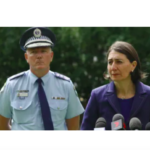Should “Affirmative Consent” Be Required Before Sexual Activity?

Clear verbal or behavioural assurances prior to sexual encounters will be mandatory under reforms to New South Wales sexual consent laws.
Those who fail to obtain such assurances will face the prospect of being convicted of sexual offences.
Welcomed by police and victim’s advocates
The reforms have been welcomed by police and victims’ advocates, who described them as the “gold standard” of sexual consent laws worldwide.
However, there are concerns the laws will lead to injustice; namely, people being convicted of sexual offences despite having done nothing morally wrong.
What is ‘affirmative consent’?
The overhaul of consent laws has taken a significant amount of time, and has largely been informed by victims’ groups, enforcement bodies and legal groups, and given impetus by recent movements such as the #MeToo movement, as well as by reporting of select cases whereby the media asserts current laws have failed.
One of these cases was that of Saxon Mullins, the complainant in a case which spanned two trials and two appeals over several years.
The man she accused of sexual assault, Luke Lazarus, was acquitted of all charges based on the fact that he had an honest and reasonable belief Ms Mullins has consented to sex.
Since then, Ms Mullins has pushed for ‘affirmative consent’ laws.
Current sexual assault consent laws
Existing laws do, however, prescribe strict rules for where it can be considered that a party consents to sexual intercourse.
In that regard, section 61HE of the Crimes Act 1900 (NSW) provides that consent is considered to have been given in the context of sexual assault cases where a person “freely and voluntarily agrees to the sexual intercourse.”
The first requirement to establish that the complainant did not consent.
The second is that the defendant knew the complainant did not consent, which is established where the prosecution proves that the defendant:
- knew the complainant was not consenting, or
- was reckless as to whether the complainant was consenting, or
- had no reasonable grounds to believe the complainant was consenting.
- In making such a finding, the court must have regard to all of the circumstances of the case including any steps taken by the defendant to ascertain whether the complainant was consenting, but it must not consider any self-induced intoxication by the defendant.
In addition to this, the current law provides that a person cannot consent to sexual intercourse where he or she:
- does not have the capacity to consent due to their age or cognitive incapacity, or
- does not have the opportunity to consent as they are unconscious or asleep, or
- consents because of threats of force or terror, or
- is unlawfully detained.
Furthermore, the law states that a person does not consent if under a mistaken belief that:
- he or she is married to the defendant, or
- that the sexual intercourse is for health or hygienic purposes.
The law also says it may be established that a complainant does not consent to sexual intercourse include where he or she:
- was substantially affected by drugs or alcohol,
- was subjected to intimidatory or coercive conduct, or another threat, that did not involve force,
- was taken advantage of through an abuse of authority or trust,
- The law also makes it explicitly clear that a complainant who does not offer physical resistance is not necessarily consenting.
Proposed changes to the definition of consent
However, the proposed laws make clear that a person does not consent to sexual intercourse unless they “say or do” something to communicate a clear “yes”.
NSW Attorney-General Mark Speakman explains that under the changes, “saying something” or giving a “facial expression or physical gesture” could indicate consent, but also cautioned that the government did not want to prescribe the various ways people could communicate consent and that people need to use common sense.
In a press release, the Department of Communities and press released condenses the proposal as follows:
“(a) a person does not consent to sexual activity unless they said or did something to communicate consent, and
(b) an accused person’s belief in consent will not be reasonable in the circumstances unless they said or did something to ascertain consent.”
Directions for juries
The reforms also include new directions for juries, so that judges can address common misconceptions such as that sexual assault can occur between strangers, acquaintances or people who are in a committed relationship, that sexual offences are not always conducted with threats, violence or physical injuries and that there is no “normal” or “typical” response to sexual assault.
These also include that the way a person was dressed, whether they consumed drugs or alcohol, would not imply consent.
Lack of resistance or a limited protest is no longer considered as ‘consent’ and this is an important change to the law, which reflects that some victims find themselves so fearful they ‘freeze’ and don’t argue or fight back, and just endure the encounter.
Reforms will also affirm a person’s right to withdraw consent at any point, meaning that while someone may consent to a particular act, it doesn’t mean they have consented to other sexual acts.
Unrealistic and dangerous
Many believe the proposal goes way too far and ignores the way in which sexual encounters take place in the real world.
There is an argument it is unrealistic and dangerous to legally require one party to obtain a statement and/or gesture confirming approval and also say or do something themselves to ascertain consent, else they are guilty of sexual assault.
There are grave concerns by a number of bodies, including the Law Society of NSW and NSW Bar Association that the reforms go way too far by reversing the presumption of innocence.
Concerns that innocent people will end up in prison
The NSW Bar Association has expressed concerns the laws will criminalise acts that are, in fact, consensual.
In the words of Bar Association President Michael McHugh SC:
“The Attorney-General’s proposals would have the effect that , even in situations where a person consents to sexual activity but has not communicated that consent by words or actions at the time, the law would hold that there was no consent. This approach would potentially criminalise many consensual sexual relations”.
There are also concerns the requirement will lead to an increase in false accusations by aggrieved or vindictive persons as well as lead to innocent people pleading guilty when they have done nothing morally wrong.
Such scenarios are rarely spoken about, let alone duly considered, given the impetus of recent social movements such as #MeToo, and the tendency to focus on complainants being heard and believed rather than the interests of innocent defendants.
Indeed, many have been heavily criticised for simply suggesting that a sexual assault complainant could be lying; a criticism that can be extremely unfair given the realities of sexual assault allegations. In that regard, many who actually practise in the criminal law profession – and even judges in the family law courts – will attest to the fact that false allegations occur far more frequently than we are led to believe by the mainstream media, which has a tendency to handpick cases and mislead the public about them.
In the real world, sexual experiences tend to occur naturally and spontaneously, and in the context of intimate long-term partnerships there are questions about whether it is realistic for partners to obtain explicit consent for every single sexual encounter.
The New South Wales Government intends to agree-in-principle to all 44 of the Law Reform Commission’s inquiry recommendations and the new laws are expected to be introduced later this year.
Receive all of our articles weekly
Related Articles
RELATED LEGISLATION
- Section 61J Crimes Act 1900 | Aggravated Sexual Assault
- Section 61JA Crimes Act 1900 | Aggravated Sexual Assault in Company
- Section 61i Crimes Act 1900 | Sexual Assault
- Section 61L Crimes Act 1900 | Indecent Assault
- Section 61M Crimes Act 1900 | Aggravated Indecent Assault
- Section 66A Crimes Act 1900 | Sexual Intercourse Child Under 10
- Section 66B Crimes Act 1900 | Attempting, or Assaulting with Intent, to Have Sexual Intercourse with Child Under 10
- Section 66C Crimes Act 1900 | Sexual Intercourse Child Between 10 and 16
- Section 66D Crimes Act 1900 | Assault with Intent to have Sexual Intercourse Child between 10 and 16
- Section 66DA Crimes Act 1900 | Sexual Touching Child Under 10
- Section 66DB Crimes Act 1900 | Sexual Touching Child Between 10 and 16
- Section 66DC Crimes Act 1900 | Sexual Act Child Under 10
- Section 66DD Crimes Act 1900 | Sexual Act Child Between 10 and 16
- Section 66DE Crimes Act 1900 | Aggravated Sexual Act Child Between 10 and 16
- Section 66DF Crimes Act 1900 | Sexual Act for Production of Child Abuse Material Child Under 16
- Section 66EA Crimes Act 1900 | Persistent Sexual Abuse of a Child
- Section 66EB Crimes Act 1900 | Procuring or Grooming Child Under 16 for Unlawful Sexual Activity
- Section 66EC Crimes Act 1900 | Grooming a Person For Unlawful Sexual Activity With a Child Under The Person's Authority
- Section 66F Crimes Act 1900 | Sexual Offences Against Persons with a Cognitive Impairment
- Section 73 Crimes Act 1900 | Sexual Intercourse Young Person Between 16 and 18 Under Special Care
- Section 73A Crimes Act 1900 | Sexual Touching Young Person Between 16 and 18 Under Special Care
- Sections 91H Crimes Act 1900 | Produce, Disseminate, Possess Child Abuse Material
- Section 61KC Crimes Act 1900 | Sexual Touching
- Section 61KD Crimes Act 1900 | Aggravated Sexual Touching
- Section 61KE Crimes Act 1900 | Sexual Act
- Section 61KF Crimes Act 1900 | Aggravated Sexual Act
- Section 91J Crimes Act 1900 | Voyeurism
- Section 91K Crimes Act 1900 | Filming Person Engaged in Private Act
- Section 91L Crimes Act 1900 | Filming Person's Private Parts
- Section 91M Crimes Act 1900 | Installing Device to Film
- Section 91P Crimes Act 1900 | Record intimate image without consent
- Section 91O Crimes Act 1900 | Meaning of Consent in Intimate Image Offences
- Section 91R Crimes Act 1900 | Threaten to record or distribute intimate image






